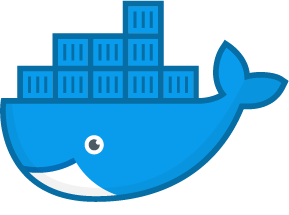Prometheus Swarm
A sample image that can be used as a base for collecting Swarm mode metrics in Prometheus
How to use it
You can configure the full system with the next commands, that create the Prometheus, Grafana and exporters services needed.
docker \
network create --driver overlay monitoring
docker \
service create --name cadvisor \
--mode global \
--network monitoring \
--label com.docker.stack.namespace=monitoring \
--container-label com.docker.stack.namespace=monitoring \
--mount type=bind,src=/,dst=/rootfs:ro \
--mount type=bind,src=/var/run,dst=/var/run:rw \
--mount type=bind,src=/sys,dst=/sys:ro \
--mount type=bind,src=/var/lib/docker/,dst=/var/lib/docker:ro \
google/cadvisor:v0.24.1
docker \
service create --name node-exporter \
--mode global \
--network monitoring \
--label com.docker.stack.namespace=monitoring \
--container-label com.docker.stack.namespace=monitoring \
--mount type=bind,source=/proc,target=/host/proc \
--mount type=bind,source=/sys,target=/host/sys \
--mount type=bind,source=/,target=/rootfs \
--mount type=bind,source=/etc/hostname,target=/etc/host_hostname \
-e HOST_HOSTNAME=/etc/host_hostname \
basi/node-exporter \
-collector.procfs /host/proc \
-collector.sysfs /host/sys \
-collector.filesystem.ignored-mount-points "^/(sys|proc|dev|host|etc)($|/)" \
--collector.textfile.directory /etc/node-exporter/ \
--collectors.enabled="conntrack,diskstats,entropy,filefd,filesystem,loadavg,mdadm,meminfo,netdev,netstat,stat,textfile,time,vmstat,ipvs"
docker \
service create --name alertmanager \
--network monitoring \
--label com.docker.stack.namespace=monitoring \
--container-label com.docker.stack.namespace=monitoring \
--publish 9093:9093 \
-e "SLACK_API=https://hooks.slack.com/services/TOKEN-HERE" \
-e "LOGSTASH_URL=http://logstash:8080/" \
basi/alertmanager \
-config.file=/etc/alertmanager/config.yml
docker \
service create \
--name prometheus \
--network monitoring \
--label com.docker.stack.namespace=monitoring \
--container-label com.docker.stack.namespace=monitoring \
--publish 9090:9090 \
basi/prometheus-swarm \
-config.file=/etc/prometheus/prometheus.yml \
-storage.local.path=/prometheus \
-web.console.libraries=/etc/prometheus/console_libraries \
-web.console.templates=/etc/prometheus/consoles \
-alertmanager.url=http://alertmanager:9093
docker \
service create \
--name grafana \
--network monitoring \
--label com.docker.stack.namespace=monitoring \
--container-label com.docker.stack.namespace=monitoring \
--publish 3000:3000 \
-e "GF_SERVER_ROOT_URL=http://grafana.${CLUSTER_DOMAIN}" \
-e "GF_SECURITY_ADMIN_PASSWORD=$GF_PASSWORD" \
-e "PROMETHEUS_ENDPOINT=http://prometheus:9090" \
-e "ELASTICSEARCH_ENDPOINT=$ES_ADDRESS" \
-e "ELASTICSEARCH_USER=$ES_USERNAME" \
-e "ELASTICSEARCH_PASSWORD=$ES_PASSWORD" \
basi/grafana
Once everyting is running you just need to connect to grafana and import the Docker Swarm & Container Overview
In case you don’t have an Elasticsearch instance with logs and errors you could provide an invalid configuration. But I suggest you to have it correctly configured to get all the dashboard offers.
You can use the provided docker-compose.yml file as an example. You can deploy the full stack with the command:
docker stack deploy --compose-file docker-compose.yml monitoring
Docker Engine Metrics
In case you have activated the metrics endpoint in your docker swarm cluster you could import the Docker Engine Metrics dashboard as well, which offers complementary data about the docker daemon itself.
More info available about this dashboard and its configuration in this post Docker Daemon Metrics in Prometheus
